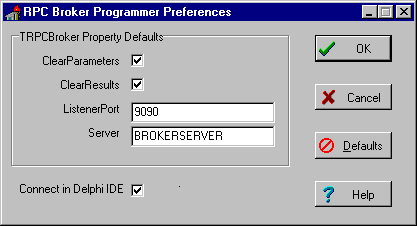4.4 Initialized variables
By default, variables in Pascal are not initialized after their declaration. Any assumption that theycontain 0 or any other default value is erroneous: They can contain rubbish. To remedy this,the concept of initialized variables exists. The difference with normal variables is thattheir declaration includes an initial value, as can be seen in the diagram in the previoussection.
A record is a highly structured data type in Pascal. They are widely used in Pascal, to group data items together logically. While simple data structures such as array s or sets consist of elements all of the same type, a record can consist of a number of elements of different types, and can take on a huge complexity. Each separate part of a. You can use either one of following constructs (where Foo is a record). Fill memory with character data or just use it to initialize memory with some given byte.
It is incorrect for cornets and other instruments.  Selmer started making trumpets in 1931 after buying out Millerau.French Cornet EstimateNumberYear981980Factory Confirmed serials:Cornet 1162 made in 1957.
Selmer started making trumpets in 1931 after buying out Millerau.French Cornet EstimateNumberYear981980Factory Confirmed serials:Cornet 1162 made in 1957.
Given the declaration:

S : String = ’This is an initialized string’;
The value of the variable following will be initialized with the provided value. The following is aneven better way of doing this:
SDefault = ’This is an initialized string’;
Var
S : String = SDefault;
Initialization is often used to initialize arrays and records. For arrays, the initialized elements mustbe specified, surrounded by round brackets, and separated by commas. The number of initializedelements must be exactly the same as the number of elements in the declaration of the type. As anexample:
tt : array [1.3] of string[20] = (’ikke’, ’gij’, ’hij’);
ti : array [1.3] of Longint = (1,2,3);
For constant records, each element of the record should be specified, in the form Field: Value,separated by semicolons, and surrounded by round brackets. As an example:
Point = record
X,Y : Real
end;
Var
Origin : Point = (X:0.0; Y:0.0);
The order of the fields in a constant record needs to be the same as in the type declaration,otherwise a compile-time error will occur.
Remark: It should be stressed that initialized variables are initialized when they come into scope, indifference with typed constants, which are initialized at program start. This is also true for localinitialized variables. Local initialized variables are initialized whenever the routine is called. Anychanges that occurred in the previous invocation of the routine will be undone, because they areagain initialized.
Initializing arrays of record.Hello everybody. How can I initialize an array of records, like # type Can I initialize the array in the 'var' section? ExampleArray : array[1.N] of Example = ( (1, 'example 1'), (2, 'example Can it be done? Probably my syntax interpretation is wrong, but I have no ExampleArray[1].id := 1; Any help would appreciated ---------------------- pjl..@arrakis.es |
Re:Initializing arrays of record.QuotePierre Leon wrote: Quote> # type to declare a initialised record constant, you have to precede each field value by the field identifier, in your case: ExampleArray : ARRAY[1.N] OF Example = ( (id: 1; content : 'example 1'),..); Also, note the semi-colons separating the fields (instead of commas). Good luck, Remco -- |
Re:Initializing arrays of record.On 25 Aug 97 15:55:19 GMT, 'Pierre Leon' <pjl..@arrakis.es> wrote: Quote>Hello everybody. you can initialize only CONST array and not that ones in the VAR section. the way you initialize the array above can be done only with CONST arrays. Bye |
1. Initializing an array of records
2. Re-initialize and array?
3. Initialize an array of structs?
4. How to declare and initialize dynamic array ?

5. Tips on dynamic arrays, and help with dynamic arrays of records
6. initializing arrays: General Protection Exception
7. adding/deleting records from array of records in .dat file
8. TDBNavigator / change record position / initialize
9. Need help in initializing records
10. initializing record variables